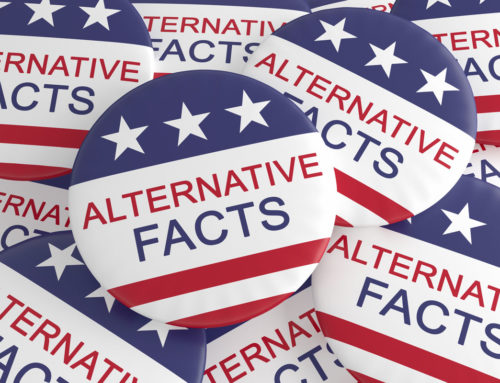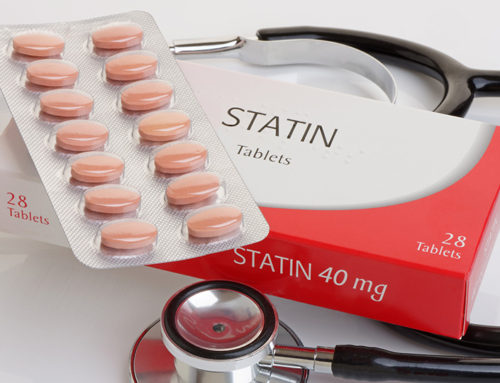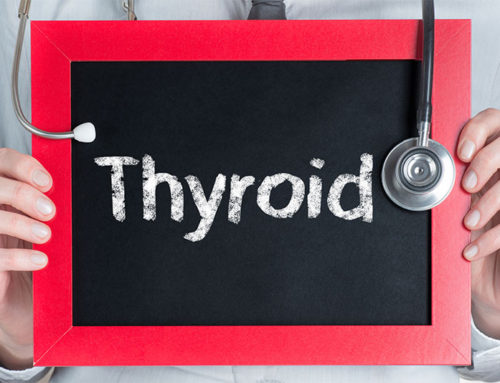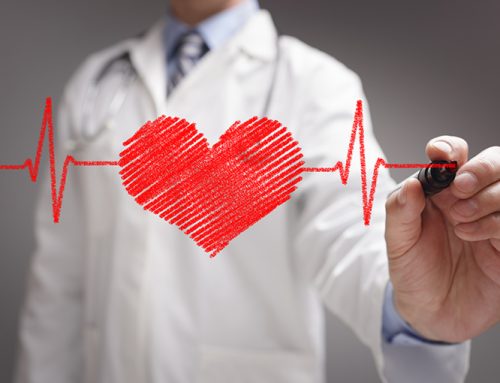As some of you may know, cardiologist Stephen Sinatra and I co-authored a book which was recently released, entitled “The Great Cholesterol Myth”.
The buzz on this has been amazing, largely thanks to you!
Even though our interview with Dr. Oz hasn’t been shown yet (probably around Christmas), word of mouth has been sensational, and as I write this the book is ranked number 2 in “Heart Disease” on Amazon.
I’ve noticed some folks posting excerpts and findings from the book all over Facebook which has been really gratifying (thanks Bryan Coad and others!)
That inspired me to knock out a column on eight popular cholesterol myths that we demolish in the book, (complete with citations, which you can show your doctor).
We’ll be talking about “The Great Cholesterol Myth” a lot in the coming months—it’s the most important book I’ve ever written and I really want you to read it.
Here are eight of my favorite cholesterol myths.
MYTH: High cholesterol is the cause of heart disease.
FACT: Cholesterol is a fairly insignificant player in heart disease.
MYTH: High cholesterol is a good predictor of heart attacks.
FACT: High cholesterol is a lousy predictor of heart attacks. Half the people admitted to hospitals with heart disease have normal cholesterol, and plenty of people with elevated cholesterol have perfectly healthy hearts.
MYTH: Lowering cholesterol with statin drugs will prolong your life.
FACT: There is no data showing statins have any impact on longevity.
MYTH: Statin drugs are perfectly safe.
FACT: Statin drugs have significant side effects, including loss of memory and libido, muscle pain and fatigue, and approximately 65% of doctors don’t report those side effects.
MYTH: Statin drugs are appropriate for men, women, children and the elderly.
FACT: The only group in which statins have been shown to have even a modest effect is in middle-aged men who’ve already had a heart attack. If you’re not in that group, you’ve got no business on a statin drug.
MYTH: Saturated fat is dangerous.
FACT: Saturated fat is mostly neutral and may even have some health benefits. Far more “dangerous” is sugar, high levels of omega-6 fat, low levels of omega-3’s and man-made trans fats. Recent peer-reviewed studies have shown no association of saturated fat with heart disease.
MYTH: The higher your cholesterol, the shorter your lifespan.
FACT: In the Framingham Study, the people who actually lived the longest had the highest cholesterol.
MYTH: A high carbohydrate diet protects you from heart disease.
FACT: Diets that substitute carbohydrates for saturated fat actually increase the risk for heart disease.
For much, much more, check out our new book, “The Great Cholesterol Myth: Why Lowering Cholesterol Won’t Prevent Heart Disease and the Statin-Free Plan that Will“.














Since they first designed the way to measure cholesterol, they have made many discoveries but that system was never changed. I guess the only purpose is to sell statin drugs to make them money.
I “preach” your ideas to my clients at my HIT/Egoscue studio all the time. Some still come back with” My doc. put my on these statins” “my doc wants my cholesterol way down…” Really uphill battle with this issue.
You’ve done a great service, Jonny. This information will save lives. All the best!
So experts. What causes heart disease if not cholesterol? You seem to have left that part out. Not that I believe mainstream medicine, but I would like answers.
Hi Kevin
That’s precisely what we wrote a book about.. what we believe are the real promoters of heart disease. Inflammation, oxidative damage, stress and sugar. Our book goes into details about why that’s so.
warmly
jb
My doc recommended the book as he was sending me to a cardiologist. I always knew in my heart that fats were not the problem (I don’t use omega 6s), but I still was pulled back into the low-fat/carb culture repeatedly. Reading your book has helped cement in my mind the reality that my raw cream and grass fed and pastured meats are indeed the right way to go, and that my low-carb diet is worth sticking to for life. Thanks!
Daily Lifestyle choices and decisions is where we need to begin. Look into the alternatives along with self experimentation and self observation.
Understand that it’s about how you look and feel for sustainable balanced health.
By having a better understanding on tool use to adapt to any environment, whether it’s the work, social, cultural etc.
it’s really that simple.
#vinrgy #FindYourBalance
A big Thank you for exposing the Cholesterol Myth @jonnybowden
I just wanted to comment that I read the phrase “Diets that substitute carbohydrates for saturated fat actually increase the risk for heart disease” to mean that it’s the fat that increases the risk as opposed to what was trying to be said. I think it could be better worded.
I think you read it backwards. If you are substituting “1” for “2”, it means you are only having “1”, and “2” is eliminated.
it’s pretty straightforward, although you read the opposite meaning from it somehow James.
That sentence means it is the carbohydrates that increase the risk of heart disease. 🙂
That sentence is so vague and misleading. Fruits and veggies (these are carbs) INSTEAD of saturated fat cause higher incidents of heart disease? Ha! What a crock!
REFINED carbs, ok fine.
That’s why the sentence is misleading and borders on inept and dangerous.
Question:
Question:
I have been reading your book The Great Cholesterol Myth and today I received the results from my annual physical. The report gives my LDL as LDL-P and LDL-C and my HDL as HDL-C, How does that translate into your discussion of LDL-A and LDL-B? or do I need to have another blood test run.
Thank You
Robert
LDL-P is the total number of particles, a HUGE improvement over regular LDL test. The number of particles may turn out to be one of the best predictors of trouble, along with apo(b) levels and other measures like Triglycerides: HDL. The particle SIZE however, which we feel is also important, is not seemingly covered in the report you mention.. particle SIZE is what would relate to LDL-a and LDL-b, while overall particle NUMBER__ an important metric– is what is meant by LDL-P
warmly
jb
Dr. Bowden, Could you tell me what dosage of Curcumin I should take per day and if I should buy Curcumin or Meriva?
Thanks
Looks like a great read. Here in Canada, we still can’t even get advanced cholesterol tests (ie. LDL particle type). It just baffles me that in this day and age we are so far behind modern research.
I have read articles on the internet that high cholesterol can lead to the blocking of the blood vessels in the eyes and ears which could cause blindness and deafness. I have high cholesterol – always about 7 total. I also had a sudden hearing loss some 13 years ago. Obviously worried about the connection , if there is one. Also a follower and supporter of the alternative view. I read the main books that debunk the hypothesis but I’m never 100% sure, so just keep collecting opinions so that I can form one myself! Any views on this gratefully received….
Reading the book now. Just wish you could have explained more about triglycerides. You make a point often that the ratio of triglycerides:HDL is the real predictor of heart disease rather than total cholesterol but you don’t talk about what they are their roll in metabolism. For instance, how is it that if you eat more refined carbs, your tri’s go up? Tri’s by your own definition in the back of the book are fats that are transported in the blood. If fat is good for us, why are high levels so bad?
Can I reduce a 63% stenosis of my left internal carotid artery, discovered w/a cerebral angiogram in March ’13? My HDL+LDL are 102, approx 6 mos ago. LDL was a bit higher than HDL, that needs to change. Trig’s are low. C reactive protein is 5.7, just above lab range. A1c for the past 2 yrs has been 106 & 105. Bad reaction to Zocor, increased glucose & after 4 mos, horrendous headaches & extreme muscle pain between shoulder blades. Taking Lovastatin 20mg 10/16/13 w/ only 1 headache. Told the statin necessary to keep the CAD in check. Recent Doppler shows no increase Take CoQ10 200mg, baby aspirin, magnesium 250mg, metroprolol 25mg and daily coconut oil. BP is still bit higher than Dr. wants but crippling migraines stopped w/ BP meds. Everything is out of whack. Any script other than statin to keep CAD in check?
The Cholesterol myth was exposed to Australians this week with the expose published by Catalyst. Worth watching: http://healingwithintent.com/self-healing/heart-disease-risk-with-high-cholesterol/
It’s nearly impossible to find educated people for this topic, however,
you sound like you know what you’re talking about! Thanks
Jonny , what do you think of Metamucil which says it will lower cholesterol
My 11 year-old (vegetarian, organic & non-gmo) has a cholesterol level of 210. (His vitamin D was a bit low too but he’s now taking a supplement). He is very healthy with a husky frame and a little over 5 ft tall and 135 lbs. He rarely drinks cow milk but if he does it’s raw. He loves butter and sour cream, but a low sugar diet. Never fast food or soft drinks. What do you recommend? Should I worry?